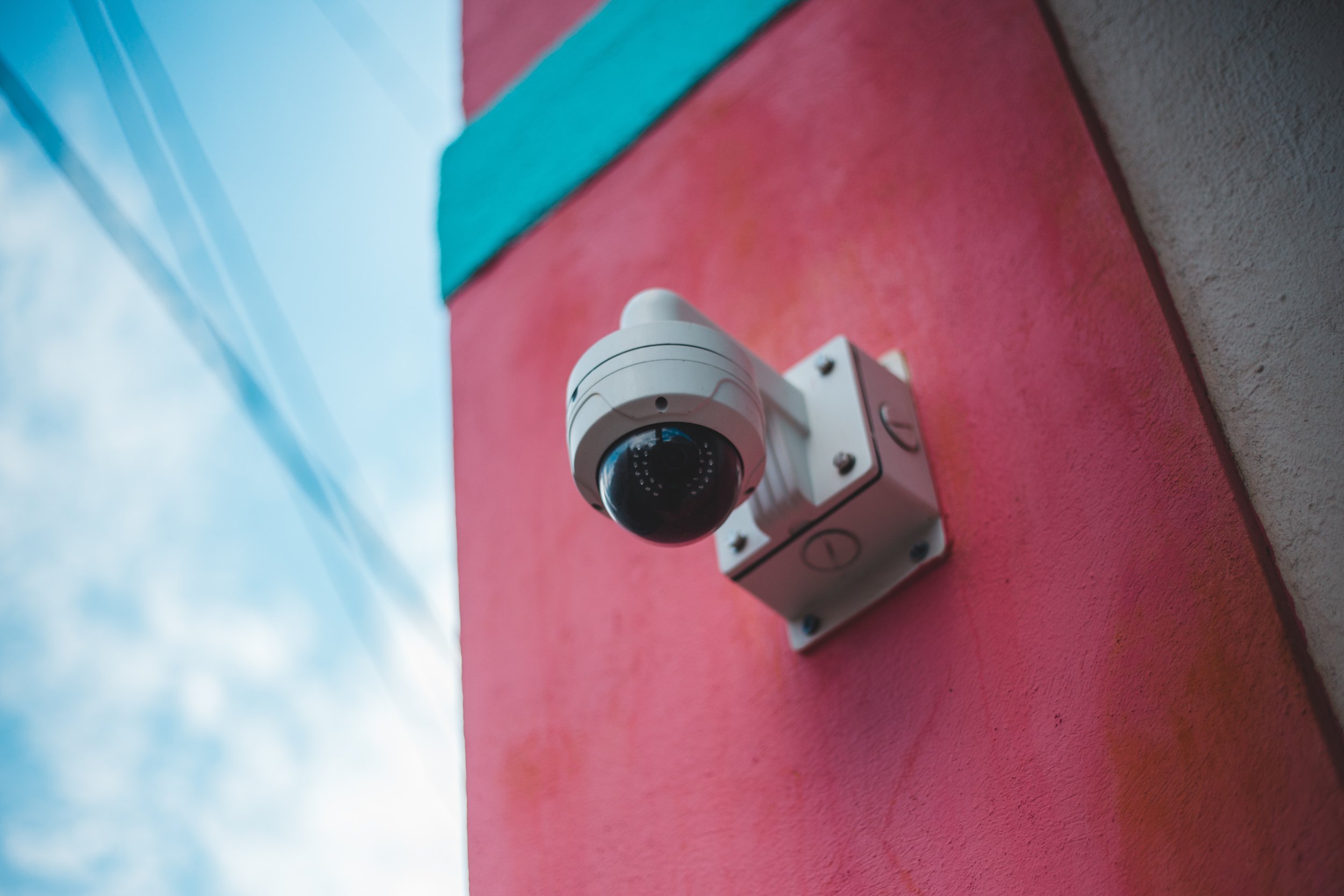5 Methods Businesses Can Use to Future-Proof Themselves From the Onslaught of AI
For your business to secure future success and keep your business alive amid the numerous changes that go on in the modern world, you've got to look at what the major threats are. Artificial Intelligence (AI) is something that will have its fair share of supporters and detractors. Artificial intelligence covers a wide variety of components, from marketing to automation, and therefore, it is natural that many employees and employers are concerned as to whether AI is going to throw a spanner in the works of many businesses. It's important for all businesses to future-proof themselves in a number of ways, not just to ensure that they are productive, but also to make sure that the culture is not shaken as a result. Here are a few ways you can future-proof your business and your employees against AI.
Staying Clued Up in the Latest SEO Practices
SEO, or search engine optimization, is one of those things that has long been considered a great way to ensure your business hits the top of search engine results pages. But because of AI is causing issues with Google searches, many companies are worried they're not going to have the same amount of hits as they used to.
One of the biggest current concerns is AEO, and many companies are wondering what is AEO. Short for Answer Engine Optimization, it is a set of practices that you can stick to provide meaningful content. Lots of people are now using AI to answer certain questions on Google without actually clicking on search engine results, which means that the web pages that provide those answers are not benefiting from the traffic.
As it stands, ensuring that you are doing what you can to provide meaningful content and answering specific questions may seem like a lot more work, especially if people are not clicking on your web page, but as the landscape of SEO is changing and with each algorithm update giving more exposure to web pages that provide meaningful content instead of the number of on-page and off-page SEO practices, in many ways, it has gone on back to the simple notion that the business that is most helpful is the one that will ultimately prevail.
Search Engine Optimization is something that is constantly chopping and changing, especially as many people have been using AI to get answers to questions without clicking on webpages, but people have already been using voice search over the last few years- AI is merely a logical extension of this. It is more important than ever to provide meaningful content, which is why keeping up to date with SEO still remains the best practice right now. And don’t forget local SEO either - engaging a local SEO agency to help make the most of your area and the communities within it is crucial if you want to stand out.
Reassuring Your Employees
It has been bubbling up over a number of years. Many people are concerned that, over the next decades, there will be a number of changes that result in automation reigning supreme. While it is certainly something that we, as employers, need to be cognizant of, the biggest problem we face is if an employee chooses to leave now and retrain before they get “sidelined” by AI. Automation is something that is more of a tool, rather than a replacement for an employee. This is why it's so important for us to remember that our employees are the bread and butter of our organization.
If we are constantly looking to automate vast swathes of our business we should not be surprised if we find people leave it. A very good example is in copywriting itself. AI tools like ChatGPT and the latest incarnation have just been unveiled, it is increasingly looking like it's going to put many copywriters out of work. But with AI tools like ChatGPT, there are still a number of internal problems:
The system does not know anything beyond the year 2021.
It has a number of inbuilt biases, cognitive and political.
It may not actually be providing factual information.
The latest incarnation of ChatGPT has been tested by having it calculate a complicated tax equation, but at the time of writing, this was not fact-checked. The important thing to remember with these AI tools is that they may seem very nifty at the outset, but when you get into them, they provide very little depth. Of course, this could change, and while you can use AI to create images and text that could be amazing filler content on a website, much like automation, you still need a human behind it to make sure it is doing the job properly.
In the factory line, automated tools need human helpers to account for downtime or specific errors. In content creation, it's very likely that writers are going to become editors if organizations decide to use AI as the sole way to create content. As it stands, AI is a very useful supplementary tool, rather than the overarching tool that is going to put many people out of work. Therefore, you need to provide reassurance to your employees that they aren't going to be thrown out of a job in the next few years.
Conversely, you might be of the opinion that you should overhaul your organization and embrace AI tools, but this is incredibly short-sighted. Businesses don't benefit from tools unless they have human input.
Bring AI Into the Organization ASAP
If you want to future-proof yourself from AI, the most important thing to incorporate is the actual tool itself. The only thing we have to fear is fear itself, and as your employees may have a number of anxieties about AI taking over their jobs, the best thing you can do is to let them peer behind the curtain.
Many employees will likely have conducted their own research as to whether AI is going to take over their role in a number of years. Instead, you need to use AI for things that will boost your business in the right ways. Human error is commonplace, from manual data entry to other administrative tasks, tools such as CRM (Customer Relationship Management) software will ensure that you use AI and automated tools in a manner that is genuinely useful.
Part of the problem many organizations have is that the advent of AI over the last few months has sparked a lot of panic. As already stated, you don't want a mutiny on your hands, where people are leaving in their droves because they feel they cannot compete with the machine.
We are nowhere near Skynet territory, where machines become sentient. What we can do as a business is leverage AI and automation to reduce those basic human errors. This may mean that people in administrative tasks may find themselves competing with the machine, but the fact is that nobody's got a robot walking around the office printing out things yet!
AI is helping people to automate the mundane and repetitive tasks that take up so much of their days. We can see how automation improves productivity in businesses, and to get the full benefits of automation, we can see how businesses have streamlined their efforts, such as with the aforementioned CRM software. In terms of delivering great customer service, CRM software is an amazing way to automate back-office functions so you can gain a greater insight into an individual customer. This is something that becomes invaluable to delivering a tailored and perfected customer experience.
We can leverage AI and automation to ensure that we are delivering on all counts, while also making sure that businesses work smarter rather than harder.
Develop a Growth Mindset
This is a valuable piece of advice for the employer and the employee. Those that think AI is going to take over the world in the next 10 years have to remember it has a lot of competition in the form of millions of years of civilization. The concern we all have is that we believe the generations that preceded AI are going to be rendered obsolete, but we have to look back at history and look at how changes in industries have benefited humankind.
From the Industrial Revolution to now, there has been an advent of tools that have made things easier and have not just made organizations more productive, but it has increased their scope. AI is something that can help us to do our jobs better right now, but it is far more important for us to have that growth mindset where we can use AI to develop intelligence in so many different ways. A growth mindset will be more prominent in workplaces that utilize AI because it is, in effect, a way of outsmarting the machines.
We also don't want it to get to the point where AI can take over every single aspect of our business because this will render our company “inhuman.” The human touch is going to be even more important going forward. Customers don't want to interact with machines. There are certain times when machines can be beneficial to businesses in terms of customer service, for example, chatbots, but the success of a chatbot is in the fact that a customer can get quick and easy answers. When a customer wants to know the finite details of a product or a process, these are things that are seldom pre-programmed into chatbots. This is why we can all benefit from a growth mindset by using AI to deliver a better service to employees and customers, building upon what we've already done.
Prioritize the Human Touch
As organizations are using more tools than ever to deliver better services, the biggest problem is when companies lose sight of who they are serving. The reason we fine-tune our marketing and use tools to streamline our services should be for the benefit of the customer, not ourselves. Customers want to gain access to things quickly, but if they find they are interacting with machines rather than people, this could very well be detrimental to a business in the long run.
Customer service is about those soft skills: listening, empathy, communication, and these are all things that automation or AI cannot do effectively. When we look at something like marketing, we end up recognizing that it's our tone of voice, our branding, and our imagery that all work together to create something that should be more human. When we are not delivering what we promise to customers and showcasing ourselves as a warm and humane business because we are turning ourselves over to tools that automate so many functions, we are selling our business short.
It's important that now we draw a line in the sand and recognize that AI and automation are tools and nothing more, but we also need to develop a human touch. It's more important than ever that we cut through the noise of AI-generated content and, of course, it seems like an amazing parlor trick to create essays in a matter of seconds, but it's far better for businesses to develop their emotional intelligence. Artificial intelligence is doing a great job of replicating human IQ, but the fact is that AI has a number of inbuilt biases, so what we can do is create a far more emotionally intelligent workforce. If you want to be a more relevant business you're going to have to check in with your feelings.
In many ways, it helps to go back to the very beginning when businesses started to sell effectively. They learned the pain points of a customer, but they also used their empathy and innate human skills to elicit a sale, so if we are looking to future-proof ourselves against something that may appear to take over our lives, we've got to be realistic. Tools can certainly develop and become refined, and AI is incredibly impressive when it comes to certain aspects of running our business, but we need to remember that if we are to be a more competitive and thriving entity, it might be time to develop a more robust reaction. AI isn't bringing about the “rise of the machines,” but we can certainly provide the right forms of resistance to make sure that our employees feel more secure in their jobs and we can develop a business that is more innately human.











